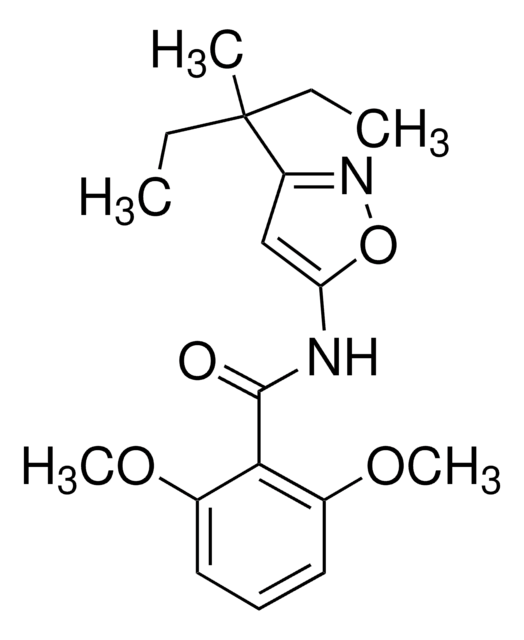H168
R(+)-7-Hydroxy-DPAT hydrobromide
>98%, solid
Synonym(s):
R(+)-2-Dipropylamino-7-hydroxy-1,2,3,4-tetrahydronaphthalene hydrobromide, R(+)-7-Hydroxy(dipropylamino)tetralin hydrobromide
About This Item
Recommended Products
Assay
>98%
form
solid
color
white
solubility
H2O: >100 mg/mL
ethanol: >56 mg/mL
SMILES string
Br.CCCN(CCC)C1CCc2ccc(O)cc2C1
InChI
1S/C16H25NO.BrH/c1-3-9-17(10-4-2)15-7-5-13-6-8-16(18)12-14(13)11-15;/h6,8,12,15,18H,3-5,7,9-11H2,1-2H3;1H
InChI key
ODNDMTWHRYECKX-UHFFFAOYSA-N
Gene Information
human ... DRD3(1814)
Biochem/physiol Actions
Features and Benefits
Caution
Storage Class Code
13 - Non Combustible Solids
WGK
WGK 3
Flash Point(F)
Not applicable
Flash Point(C)
Not applicable
Personal Protective Equipment
Choose from one of the most recent versions:
Certificates of Analysis (COA)
Don't see the Right Version?
If you require a particular version, you can look up a specific certificate by the Lot or Batch number.
Already Own This Product?
Find documentation for the products that you have recently purchased in the Document Library.
Our team of scientists has experience in all areas of research including Life Science, Material Science, Chemical Synthesis, Chromatography, Analytical and many others.
Contact Technical Service







